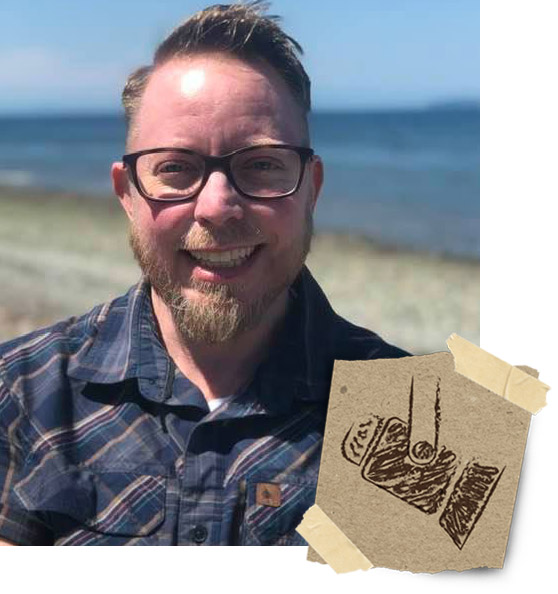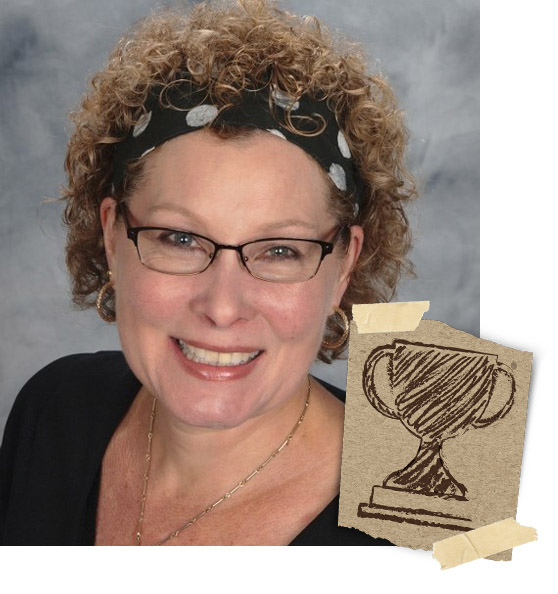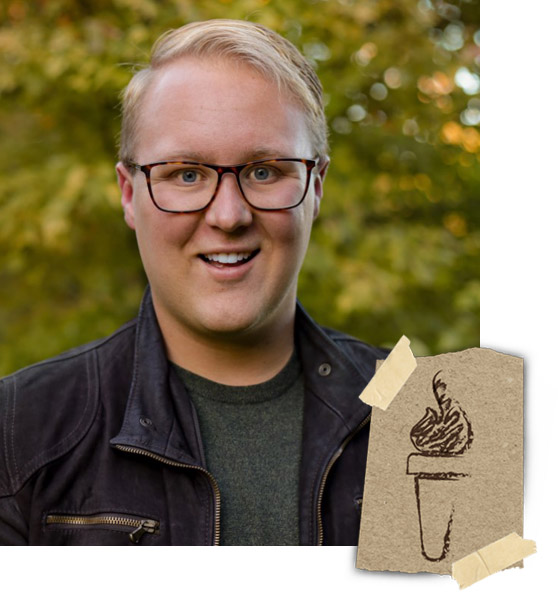Diversity Spotlight: Dr. Cameron Whitley
October 12, 2021 - Liz Schondelmayer
 Dr. Cameron Whitley is an assistant professor at Western Washington University's College of Humanities and Social Sciences. But before he was a Viking, Dr. Whitley was a Spartan, earning both his Master's degree and PhD from the Michigan State University College of Social Science.
Dr. Cameron Whitley is an assistant professor at Western Washington University's College of Humanities and Social Sciences. But before he was a Viking, Dr. Whitley was a Spartan, earning both his Master's degree and PhD from the Michigan State University College of Social Science.
An expert on environmental sociology, Dr. Whitley's research revolves around understanding how our relationships with other people, animals and our environment shape our beliefs and behaviors. Below, Dr. Whitely shares more about his important research and the importance of LGBTQ+ History Month.
Before coming to MSU, Dr. Whitley spent his undergraduate career studying how relationships change due to transgender identities. However, at MSU and with the support of social science faculty, his research interests broadened to include an interdisciplinary approach to understanding the connection between relationships and beliefs.
Prior to MSU, I attended the University of Colorado at Boulder (CU Boulder). I completed an undergraduate honors thesis looking at the experiences of significant others, family members, friends, and allies as they come to terms with the transgender status of a loved one. In selecting a graduate school, I wanted to be able to continue this work, but also to explore my interest in environmental sociology and animal studies. I learned during my undergraduate career that only doing research related to my identity as a transgender person was emotionally draining and unsustainable. MSU had a top program in environmental sociology, and it had an excellent animal studies program.
The highlight of my experience was being part of the graduate student ecological change group under the leadership of Dr. Tom Dietz and Dr. Linda Kalof. Basically, it was a group of graduate students that met frequently who were all interested in environmental and animal-related research. I had exceptional mentors while at MSU who not only supported my research interests, but also recognized my commitment to teaching and social justice. I was not only taught how to do research, but I was also taught how to engage the publishing process, network with other scholars, and promote collegiality. Most importantly, I learned how to do collaborative interdisciplinary research. I am honored to say that as of 2021, I have worked and published with over forty people from an array of disciplines such as psychology, emergency medicine, nephrology, chemistry, sociology, political science, musicology, philosophy, criminology, anthropology, and sociology work.
At WWU, Dr. Whitley's current work is focused on how members of the LGBTQ+ community interact with nature compared to their straight, cisgender peers. When he's not conducting research, Dr. Whitey is also a committed professor, and enjoys helping students succeed both in and outside of the classroom.
Currently, I am working on a suite of projects to assess if and how LGBTQIA+ people think about and engage the environment and animals differently from cisgender, straight individuals. It has always been my goal to connect these topics. Some of the questions that I explore include looking at if, how and when engagement with the environment and animals impacts wellbeing and assessing how plant-based diets are interpreted, valued and devalued among different communities. It is only recently that sexuality and gender identity are being included in studies that look at attitudes and behaviors. The argument is not that being LGBTQIA+ makes you inherently more connected to nature and animals, but that being part of the LGBTQIA+ community, which holds a distinct identity, may have an impact.
WWU is a social justice and environmentally-focused campus, making it the perfect fit for me. I teach courses like Environmental Sociology, Animals, People and Nature, and Research Methods. WWU is a special place because the student body is really engaged politically, which means that they are especially interested in how course concepts translate into real world application. I enjoy connecting course content with what community providers and organizations are doing. I invite community partners into the classroom and I set up student visits outside of the classroom. I also like talking about how to use a sociology degree to enter a variety of fields such as marketing and finance. Before starting graduate school, I was a Deputy CFO for an economic development organization among other things, so my perspective is shaped by those experiences as well.
When I started out on my academic journey, there were no transgender or nonbinary professors that I knew of in any academic institution. Part of my desire to be an academic and be “out” about my journey has always been to change that perception for younger generations. In my youth, I looked up to people like Leslie Feinberg for their community organizing, and Jamison Green and Kate Bornstein for their prose, which I identified with. Now, in every class I teach there is at least one student who reaches out to say how great it is to have a professor who identifies as nonbinary and transgender. Representation matters.
While his research focused on many different types of relationships, beliefs, and behaviors, much of Dr. Whitley's research is inspired and/or impacted by his own experiences as a transgender man - especially with the health care system.
I have drawn on my identity as a transgender man to conduct research on LGBTQIA+ issues for nearly two decades. As aforementioned, I began this endeavor as an undergraduate, and that project turned into an edited book and a journal article. Since that time, I have engaged in several projects, but perhaps the most important line of inquiry started when I was diagnosed with kidney failure about six years ago.
I immediately looked for articles exploring kidney function/failure and transgender patients. There were none. I then looked at how kidney function is measured, which dictates when and how people are placed on transplant lists. What I found was shocking: kidney function is measured using a simplistic binary sex system that does not take body size, organs present, hormone levels, etc. into consideration. Immediately I recognized that this simplistic analysis could be harmful for transgender patients (particularly transgender men) seeking kidney transplantation. I contacted a clinical chemist who seemed to work on other laboratory issues related to transgender patients at a major university on the west coast and presented my notes. She immediately agreed to work with me on writing an article about this issue. This article and the follow-up have increasingly gained attention leading to numerous discussions around kidney function calculations, official transplant lists and how to best treat transgender patients in specialized medicine fields. My hope is that one day there will be official policy to support transgender people in the process of receiving organ transplants, but that will need to come from the United Network for Organ Sharing and some of those discussions are being had due to an evolving body of research that I’ve been honored to contribute to. Recently, my story and our collaborative work was featured by the BBC. Although I am not a medical professional or medical scholar, it was the training I received at MSU that gave me the tools to reach out and collaborate with someone who could help me get this story out to medical providers.
Finally, in response to the harmful rhetoric and polices that have been targeting the LGBTQ+ community - especially nonbinary and transgender people - lately in the U.S., Dr. Whitley shares how each of us can be better allies to the queer people in our lives.
This is a great question and one that can be hard to answer, as being an ally can depend on the context. Allies are people who provide support for a group or individual. I think this is a great start. As professors we can be allies by including materials and examples that are not heteronormative in our classes. When giving directions to restrooms, we can give all options including mentioning a gender inclusive restroom location. We can refrain from assuming gender and sexuality. While allyship is important, I want to bring in the notion of being an accomplice. To be an accomplice, you need to go beyond allyship to use your privilege to challenge existing conditions at the risk of your own comfort.
So, what does this look like? It starts by listening. Listen to what issues your LGBTQIA+ friends are bringing up. Then, ask them if a resource you access have to might be beneficial to the situation. For instance, if you are a professor and you hear a student talking about the lack of gender inclusive restrooms on campus, offer to assist by contacting the administration and using your privilege to get answers and get others involved. Being an accomplice can be uncomfortable and challenging. If you are a parent, think about how gender and sexuality is depicted at your child’s school. Start asking about the inclusion of LGBTQIA+ history, inclusive restrooms and changing rooms and if faculty and staff have received training about how to support LGBTQIA+ students. Don’t just assume LGBTQIA+ parents should bring up these issues. The same goes for your church, place of employment and any membership organization you are a part of. Being an accomplice is taking an active role in promoting diversity, equity, and inclusion.
Read more:

Diversity Champion
Faculty/Staff
Dr. Robin Miller
Dr. Robin Miller is an MSU professor of Ecology/Community Psychology whose research focuses on structural and community-level HIV prevention programs for young sexual minority men.

Diversity Torch
Student
Mr. John Steudle
John Steudle, an MSU Human Resources and Labor Relations graduate student, has committed himself to supporting LGBT students throughout campus.

Diversity Matters
We strive to cultivate an inclusive and welcoming college environment that celebrates a diversity of people, ideas, and perspectives.

